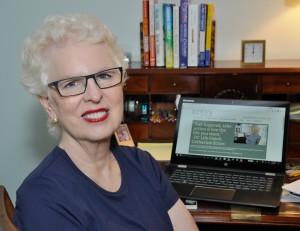
“When was the last time you did something for the first time?”
This was a breakthrough question for Eileen*, a work-at-home Mom in her mid-40s. If you follow my blog, you know this coaching question is one I ask my clients often (see my previous post about the science-backed power of trying new things).
When Eileen came to me for life coaching, she wanted to make changes in her life. She was in her mid-40s, a mother of two, and owner of a very successful business. Living in upstate NY was not her favorite place to be, but that was where her husband had his job.
Like many of my self-employed clients, she felt owning a business was a double-edged sword. It offered her a lot of freedom, but also meant she worked remotely, by herself and often in solitude. She missed the camaraderie, teamwork and collegial atmosphere of an office environment. Her loneliness led her to question her entire situation. Despite her success going-it-alone, she wasn’t happy.
Step 1: Life Coaching for Clarity
- How she would use the time ahead to find fulfillment, and
- What she had done in the past that helped her feel content.
We also addressed her fears related to seeing her children move towards independence. She confided that it was a relief to be open and honest in these discussions. My role as her life coach, not a relative or friend, allowed her to explore her needs and desires without judgement, criticism, or worry about any vested interest in her outcomes. (Many of my clients say that having a professional, certified life coach is superior to advice from friends, sometimes even to having a therapist. Learn the key differences in my previous posts, Life Coaching vs. Therapy and How Life Coaching Differs from Friendship.)
Step 2: Life Coaching to Identify Obstacles
Step 3: Life Coaching to Develop Action Steps
Step 4: Your Life Coach as Your Champion, Your Challenger
- How to look at her situation from various perspectives,
- What was working for and against her,
- To accept some aspects of her life, and
- How to change the things that needed changing.
How I Can Help as Your Life Coach
 The isolation and “grind” faced by many solopreneurs and entrepreneurs can create confusion about purpose and direction. Layoffs, retirement and moving within an organization can be an “a-ha” moment for personal reinvention. Trying new things is a key for many of my clients, but when they come to me they often don’t know where to start.
The isolation and “grind” faced by many solopreneurs and entrepreneurs can create confusion about purpose and direction. Layoffs, retirement and moving within an organization can be an “a-ha” moment for personal reinvention. Trying new things is a key for many of my clients, but when they come to me they often don’t know where to start.
Friends, family and bad or inexperienced coaches might be good at telling you what to do or constantly giving you advice when you come to them with a problem or idea for change. You can even find plenty of instructions or advice for “living your best life” on the Internet. As a trained and certified Life Coach, my job is not to instruct or advise. My job is to help you explore and come up with the best choices for you based on where you want to be, and develop a concrete plan with actionable steps to get there. Unlike self-help books or the Internet, I’m working collaboratively with you, using guided conversations, proven assignments and exercises, and accountability tools that really work. Unlike your friends and family, I’m an expert at the process of changing behavior – which is much more valuable than instructions or advice when you truly want to make a change. Warning: it also may be far more effective!
Are you ready to start a new chapter in your career, or are forces beyond your control making this the moment for you to start afresh? What changes do you want and need to make to pursue your dreams through your work? Check out the useful tips and another client case study on my Career Transition Coaching page.
It may be obvious when we are unhappy, going through the motions or stuck in a “rat race” … but it can be difficult to articulate what gives us true joy, and take concrete steps to find it.
Contact Catharine Ecton for a complimentary, no-obligations Career Transition Coaching consultation and let’s discuss the possibilities. Or use the Appointment Scheduler and pick a time that works for you. I coach 90% of my clients over the phone and via Skype.
*Names have been changed to protect client confidentiality.
